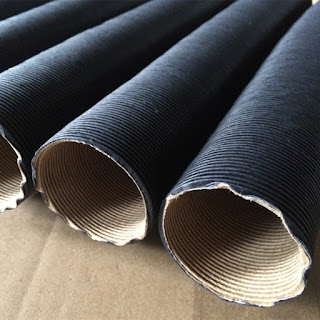Can exhaust lagging improve the performance of my vehicle?
Yes, exhaust lagging can improve the performance of your vehicle in several ways:
Increased Exhaust Gas Velocity: By insulating the exhaust system components, such as exhaust pipes and headers, exhaust lagging helps to maintain higher temperatures within the system. This promotes faster exhaust gas velocity and flow, reducing backpressure. Reduced backpressure improves scavenging, allowing the engine to expel exhaust gases more efficiently. As a result, the engine can breathe better, leading to improved performance, including increased horsepower and torque.
Enhanced Engine Efficiency: Improved exhaust gas flow and reduced backpressure achieved through the use of exhaust lagging can contribute to better engine efficiency. When the exhaust gases can exit the engine more freely, there is less interference with the intake of fresh air-fuel mixture, resulting in improved combustion. Better combustion efficiency translates to increased power output and optimized fuel consumption, improving overall engine efficiency.
Faster Catalytic Converter Activation: Exhaust lagging helps to maintain higher temperatures within the exhaust system, including the catalytic converter. This rapid heat retention and reduced heat loss enable the catalytic converter to reach its optimal operating temperature more quickly. A fully activated catalytic converter efficiently reduces harmful emissions, resulting in improved engine performance and compliance with emission regulations.
Heat Management: By containing and insulating the heat within the exhaust system, exhaust lagging helps to regulate temperatures in the engine bay. Lower underhood temperatures can have a positive impact on the performance of surrounding components, such as the air intake system, hoses, and wiring. Cooler intake air improves combustion efficiency, while cooler components are less prone to heat-related degradation and performance issues.
Weight Reduction: Some exhaust lagging materials are lightweight, which can contribute to weight reduction in the overall vehicle. A lighter vehicle often leads to improved performance, including better acceleration, handling, and fuel efficiency.
It's important to note that the extent of performance improvement may vary depending on various factors, such as the design of the exhaust system, the specific application, and other modifications made to the vehicle. Additionally, proper installation and selection of high-quality exhaust lagging materials are essential to ensure optimal performance benefits.
 |
| Can exhaust lagging improve the performance of my vehicle? |
 |
| Can exhaust lagging improve the performance of my vehicle? |



Comments
Post a Comment